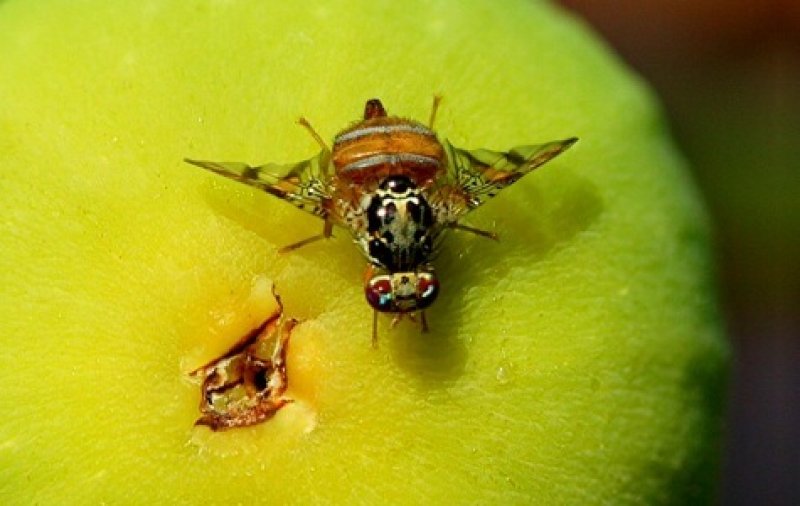Oxitec announced [Dec. 12] that after a series of successful contained environment studies across multiple countries with its self-limiting Mediterranean fruit fly (Medfly), the Company is ready to move forward towards open field trials. The studies demonstrated the self-limiting Medfly’s ability to successfully mate with wild Medfly and subsequently suppress the pest population. The efficacy of the Oxitec Medfly and existing control methods were also examined.
Oxitec’s Chief Scientific Officer, Simon Warner, Ph.D., said, “…the performance of our Medfly solution in testing … has confirmed our belief that this product may deliver superior efficacy and an improved environmental profile as compared to many products on the market today. We are now planning to advance our environmentally-friendly Medfly product into field trials …”
The Medfly (Ceratitis capitata) is considered one of the world’s most destructive agricultural pests capable of causing billions of dollars in damage by attacking more than 250 types of fruits, nuts and vegetables. …
Medfly is difficult to manage by conventional methods … growers need alternative technologies for control. Oxitec’s approach uses genetically engineered self-limiting Medfly males that are released to mate with wild females. Their female offspring do not survive to adulthood and repeated releases result in a reduction of the pest population.
The GLP aggregated and excerpted this blog/article to reflect the diversity of news, opinion and analysis. Read full, original post: Oxitec’s Medfly Ready for Open Field Trials































